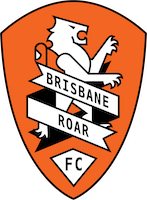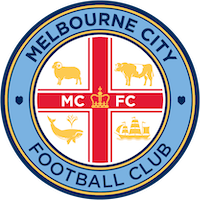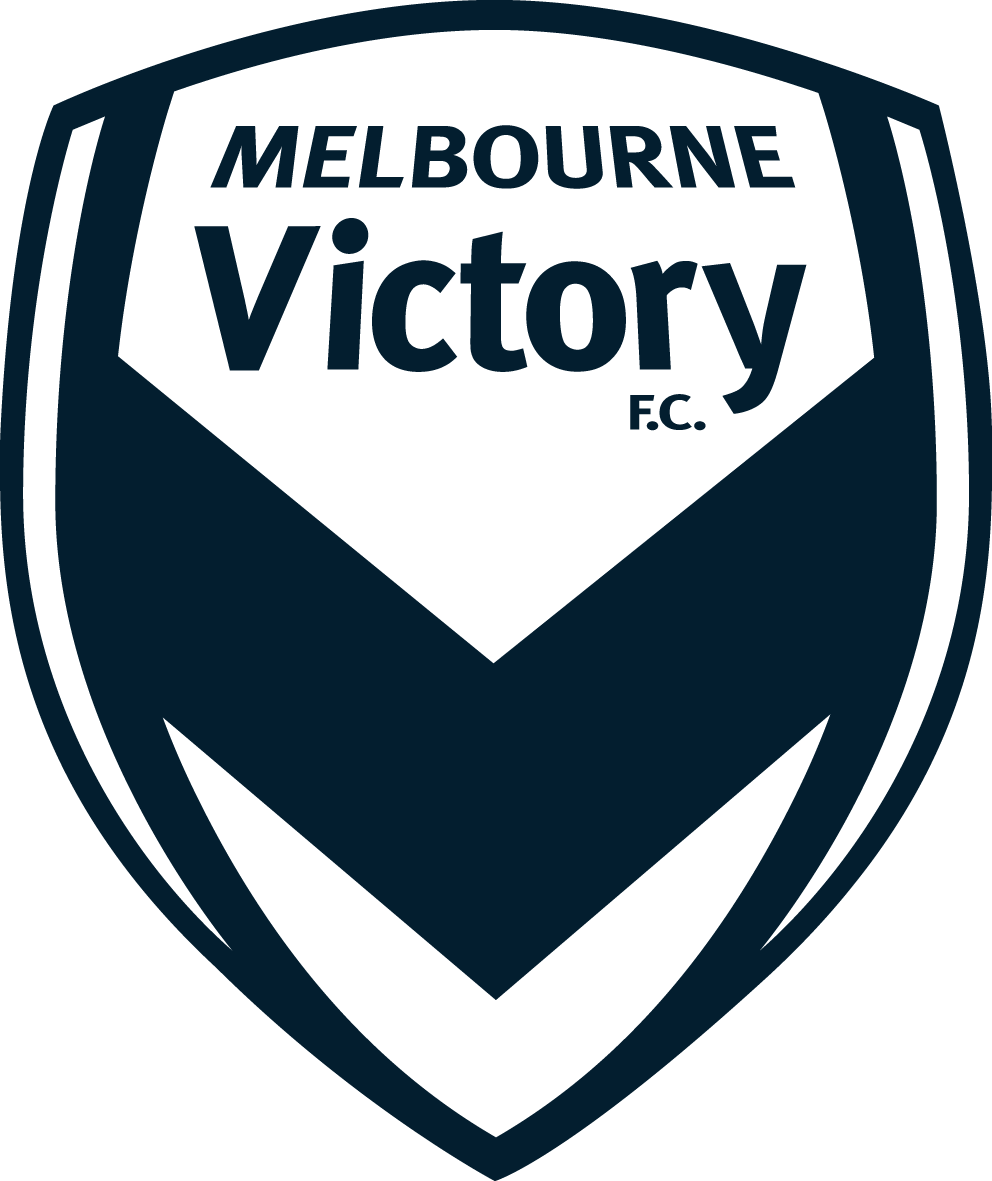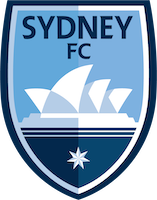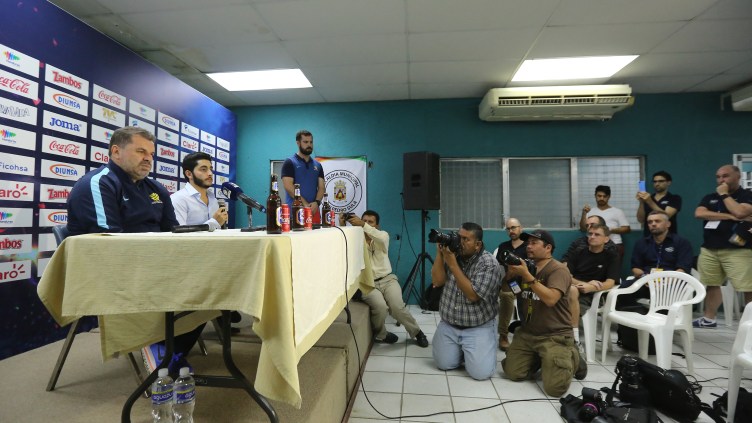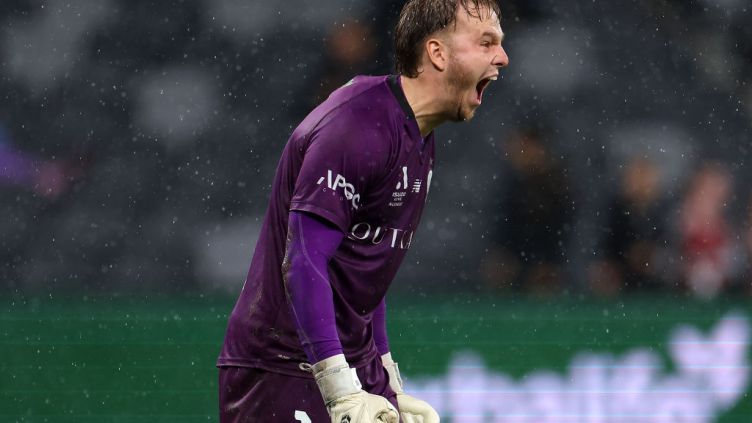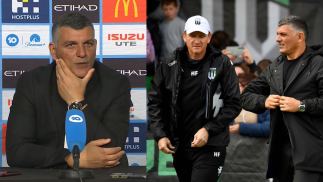Ex-Socceroos boss Ange Postecoglou will bring same self-belief and zeal for attacking football as he has for 15 years, writes Tom Smithies.
Regrets? Ange Postecoglou has had a few – but then again, none for the past decade and a half.
The Australian coach who has signed a four-year deal at Tottenham will, as he has at every club since 2009, do things his way, on his own terms, and stand or fall by the way he believes football should be played.
CONFIRMED: Ange Postecoglou signs four-year contract as Tottenham head coach
Ever since a coffee near an airport in Queensland convinced the owners of Brisbane Roar to appoint Postecoglou in 2009, he has never compromised on his style, his management or his tactics. To suggest he might now, when on the verge of stepping into the exalted air of the Premier League, is to misunderstand the whole point of the Postecoglou project.
His self-belief is absolute, and it spreads to those who work for him. All that those who employ him have to do is back him, and show the same belief. That will include Tottenham chairman Daniel Levy, often described as one of the most hard-nosed club executives in the Premier League, and what unfolds over coming months promises to be hugely entertaining, one way or another.
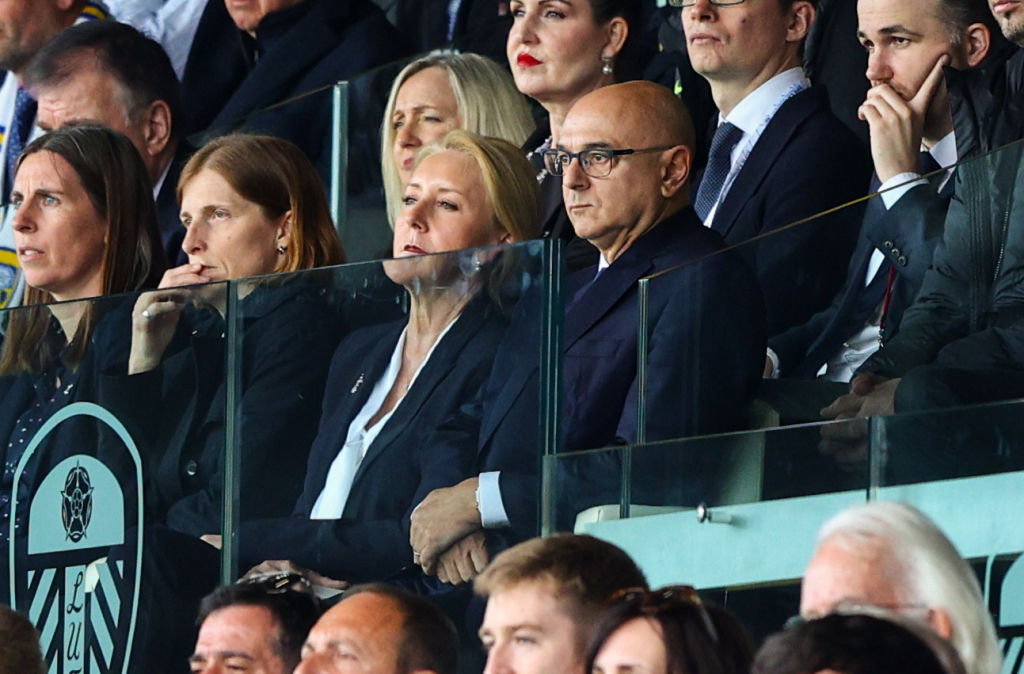
Those who doubt Postecoglou, particularly those who do so publicly, are falling into the same trap that he sets for his team’s opponents. He feeds upon the scepticism, to the point at times that it can feel like he wants to turn any critique into the sort of slight that drives him to achieve more each time.
It’s one of the reasons why the shelf-life of his projects has been limited, because the success achieved with each means he has proved himself once more, and a new challenge has appeared on the horizon. There are precious few sceptics left in Scotland, just as there were none left in Japan. But the dismissive reaction of sections of the Tottenham support is precisely the fuel that drives him on a quest to produce teams that not only play thrilling football but – as he is wont to remind us – also deliver success.
One interview in particular is revealing on several fronts, and it came at an upmarket Sydney hotel in 2017 with a handful of Australian journalists. In the context of why he was first appointed to succeed Holger Osieck as Socceroos boss, he said: “I don’t forget, while others do,” and his memory for the lowest points of his career continues to be strong.
That interview came four days after he had implemented the infamous three-man defence that he had decided was a necessary tactical shift in the midst of a World Cup qualifying campaign. As journalists we queried the risks, especially in light of the system’s debut during a nervy 1-1 draw with Iraq on a filthy night in Tehran.
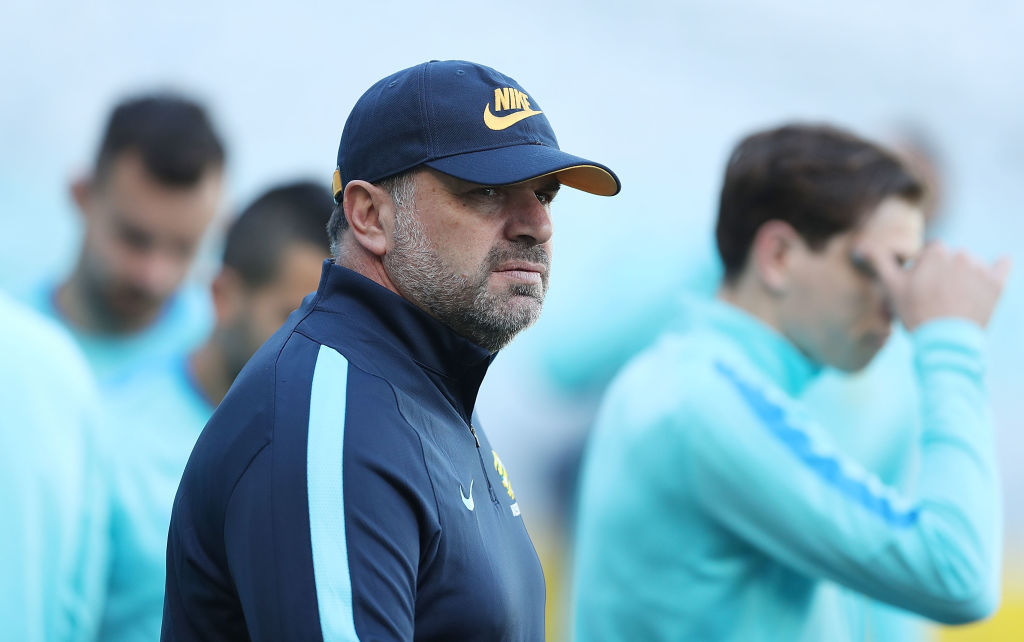
READ MORE ON KEEPUP
CORNTHWAITE’S CALL: Mariners gun backed for Socceroos call-up
A-LEAGUES LIFE: Best of Mariners’ wild title celebrations, led by Jason Cummings
BIG PICTURE: This is not just a trophy lift photo. It defines a club, a person & a fairy tale
BEYOND THE A-LEAGUES: Socceroo set for dramatic 18-year Serie A first thanks to Dybala
To Postecoglou, the only risk came from not doing what he thought was right; the fatal mistake he believed he made as Young Socceroos boss in 2007, and which led to his sacking. “That was the only time in my career I compromised my beliefs, never again mate,” he said to us a decade later.
With the kind of sharp humour that he has thrown at journalists in Scotland, he reminded us that he was appointed to be the antidote to Osieck’s brand of purely functional football. “Unfortunately for everyone they’ve got the coach they wanted. I’m going to do it and sometimes you have to be careful what you wish for.”
This is why, in many ways, Tottenham is the perfect club for Postecoglou, for all that it has ground down a succession of Europe’s best-credentialed coaches. You could argue that the safe environment of a well-run, competent, mid-table side such as Brighton wouldn’t fuel him in the same way.
But the Tottenham fanbase is demanding (too demanding, it might well be argued of a club that hasn’t won a trophy since the year Postecoglou got sacked as Young Socceroos boss). They demand attacking football with flair, and for their team to compete for a place in the Premier League’s top four, even though their club has for years shown a level of managerial dysfunction serious enough to make the best young manager in Holland turn the job down a few weeks ago.
As he has shown at Celtic – a club suffering a serious crisis of identity before he was appointed – Postecoglou is the antithesis of a top-down coach with a brief just to prepare the first team. Each appointment for him is a project, at clubs he believes can thrive on his passion. He aims to create teams that are recognisably his, which play the Postecoglou Way so effectively that opponents are forced to adapt to him, and not the other way round.
That all began with Brisbane, where he shipped out a bunch of senior players in his first few months and developed the high-octane, front-foot style that has been his trademark since. One senior player who was still there in the second season went to he club board and made a “him or me” ultimatum; the board told him to close the door on his way out of the club as they could already see the Postecoglu stlye bearing fruit.
It was just the record unbeaten run that the Roar went on, or the trophies they collected. Even now some of the senior players in that team remember how much they loved the style, the combinations they built on the pitch, how much fun it was.
It’s worth noting too that it’s in no way off the cuff; at Melbourne Victory, the attacking players were given specific instructions as to which zones of the pitch to occupy, and which passing chains to pursue. But the whole point is that when players take it on board, the results create a different kind of freedom from having so many different angles to attack.
Beyond the playing group, Postecoglou infuses himself into clubs. He will articulate the hopes, dreams and fears of the Tottenham support, will buy into the history and tradition of the club but make clear that he is there to write a new history untroubled by the ghosts of the past. Accepting that the initial stages are often challenging, they just have to let him get on with it.
We know what happens when he feels that isn’t the case. Eight months after that interview in 2017 he walked out on the Australian job because he felt that his employers and some of the wider football community weren’t fully invested in his project to create an Australian team that could make its mark at a World Cup, that too many voices were preoccupied with taking safe options.
At the point now where the stakes for him personally might seem to be higher than ever, he will be more determined than ever to do it his way.


